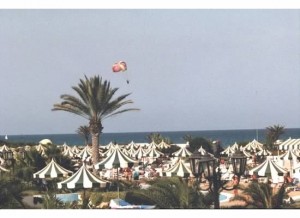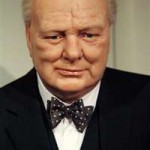Of all the countries convulsed by the Arab Spring, beginning in 2010, only the small North African nation of Tunisia remains a serious contender for a democratic form of government.
One of the leaders of the democracy movement in Tunisia offered his thoughts on Muslims and democracy. (Rached Ghannouchi, “From Political Islam to Muslim Democracy,” Foreign Affairs, September/October 2016.)
Ghannouchi helped found the Ehnnahda Pary as an Islamist party years ago when Tunisia was still ruled by a dictator. He suffered imprisonment and torture for his activities,
He believes past Tunisian dictatorships forced secularism on Tunisians. Since the people now are free to practice Islam if they wish, Ghannouchi writes, he no longer sees a need for his party to protect Islam as a core political activity.
The new constitution, he says, “enshrines democracy and protects political and religious freedoms.” Muslims now are free to worship as they please.
But how free are religious minorities to practice their religion?
Most Tunisians practice Sunni Islam, but Christians, Jews, and other faiths are represented in the population. Some operate schools for their youth.
When I lived in Tunisia in the early 2000’s, before the Arab Spring, I attended a mostly expatriate gathering of Christians. On my way to the church, I passed a Muslim mosque and a Jewish synagogue. Local Christians also gather in Tunisia, as do Bahais.
Tunisia’s constitution declares Islam to be the country’s religion. The Tunisian president must be Muslim. Yet, the constitution also stipulates that the country is a civil state. It guarantees freedom of belief, conscience, and exercise of religious practices.
No doubt the average Tunisian accepts the concept of a state religion with some tolerance for other beliefs. The line between complete religious freedom and the pull of a majority religion is never easy for any nation.
For more information, the following link will take you to the State Department’s International Religious Freedom Report for 2015. Find your way to the report on Tunisia and other countries of interest to you.


 I search news reports for clues about a country’s first encounters with democracy. That country is Tunisia, where I once lived and worked. I scan the recent pictures. When I lived there, few women, and no younger ones, wore the head scarf. Most of them dressed like counterparts on the streets of Paris. Now the head scarf appears more often. Plenty of women do not wear it, but it still surprises me that some do.
I search news reports for clues about a country’s first encounters with democracy. That country is Tunisia, where I once lived and worked. I scan the recent pictures. When I lived there, few women, and no younger ones, wore the head scarf. Most of them dressed like counterparts on the streets of Paris. Now the head scarf appears more often. Plenty of women do not wear it, but it still surprises me that some do.